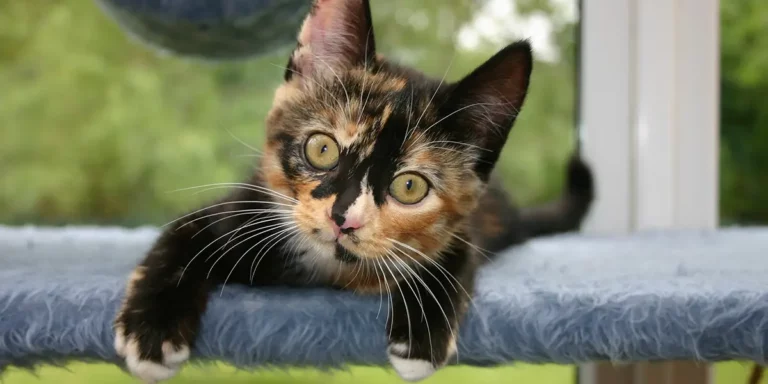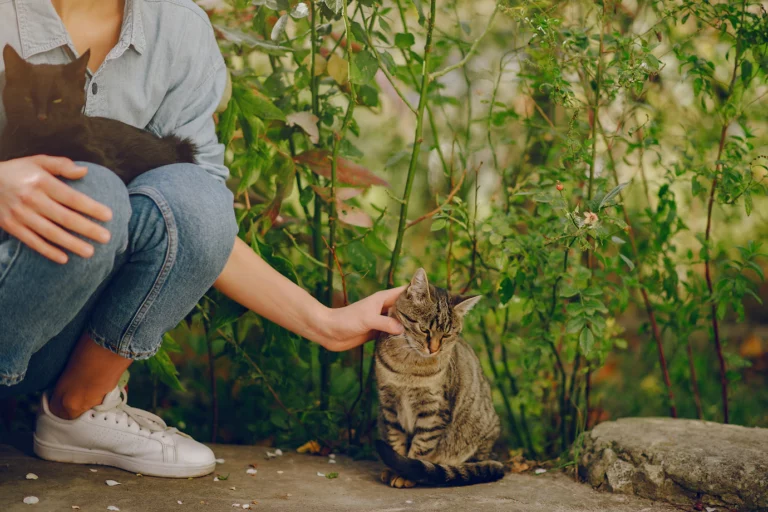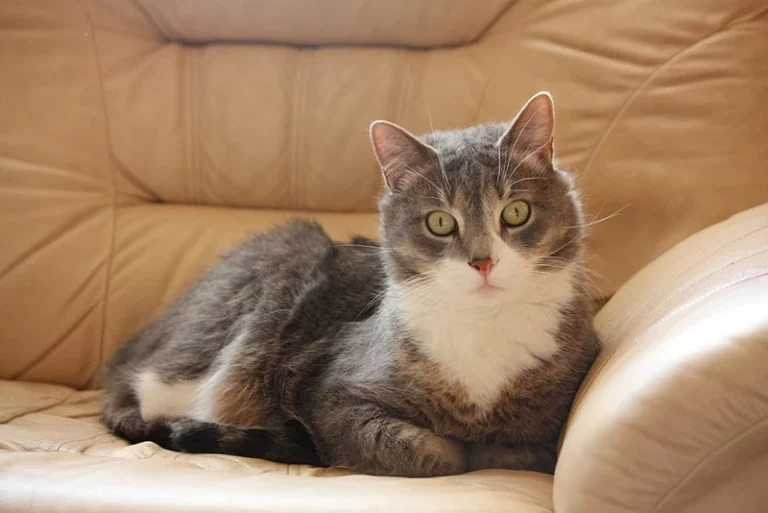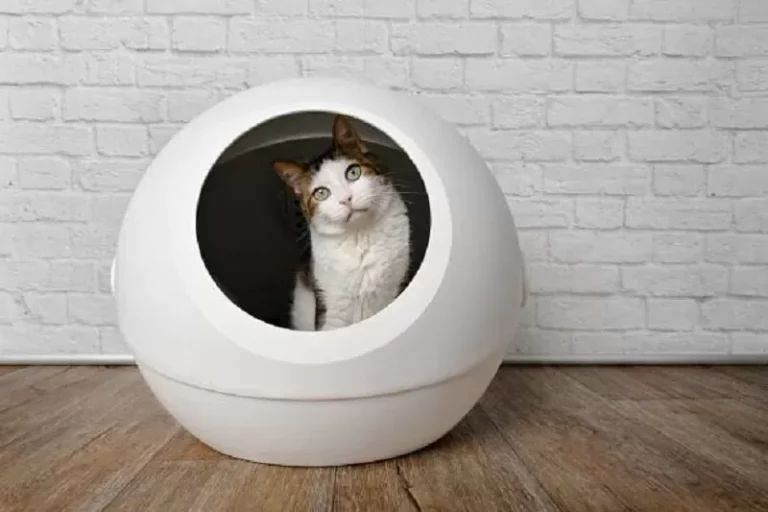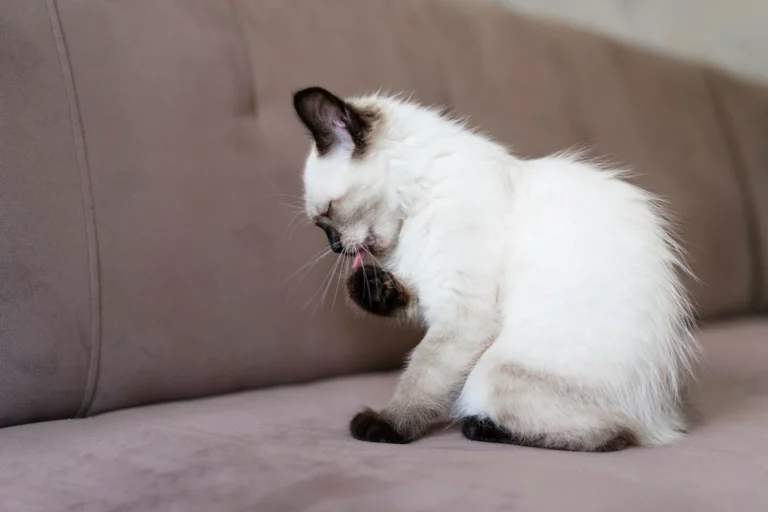Can Cats Safely Eat Imitation Crab?
Imitation crab can be a tasty treat for humans but is it safe for cats to eat? We’ll explore the nutritional value of imitation crab, and the potential risks that come with giving your furry friend a taste of this seafood substitute.
What is Imitation Crab?
Imitation crab, sometimes also called surimi or kamaboko, is a seafood product made from minced fish flesh that has been formed into long strips and flavored to taste like crab.
It’s an affordable and convenient alternative to real crab and often used in sushi dishes as well as salads and other recipes. It can be served raw or cooked.
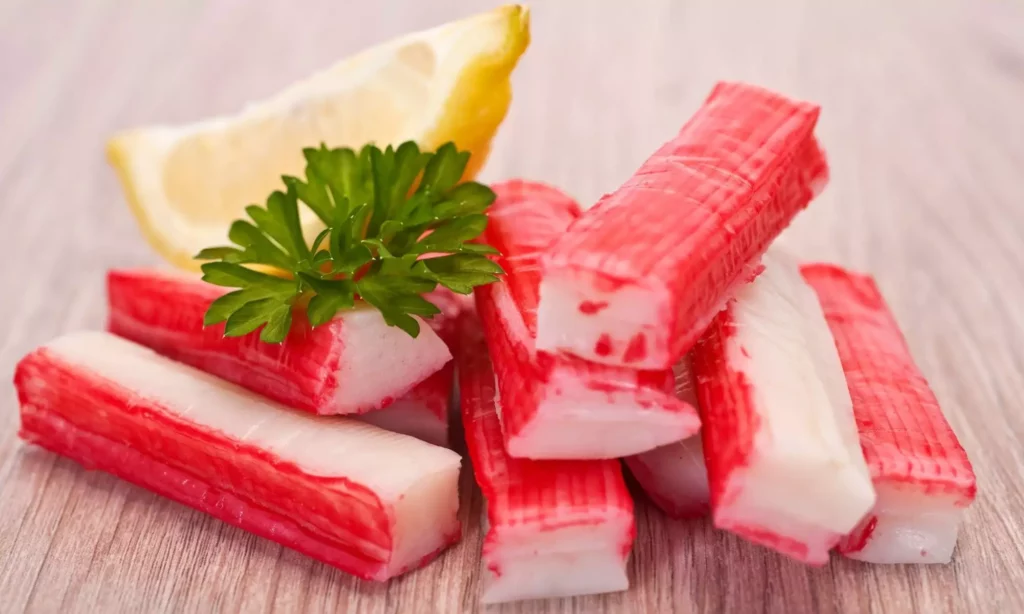
Can Cats Eat Imitation Crab?
While cats can enjoy small amounts of imitation crab without any negative effects, it is not recommended as a regular part of your cat’s diet. Imitation crab does not contain real crab meat and includes ingredients, such as fillers, preservatives, additives and seasonings that might make your cat sick if eaten in large amounts or on a frequent basis.
If you are thinking of feeding your cat imitation crab products, you should look for one that is made up primarily of pollock, egg whites, wheat and/or corn starch, sugar and salt.
This type of imitation crab should be safe for cats to eat periodically as an occasional treat.
Make sure it’s cooked before serving it to your kitty as raw fish can contain parasites that are harmful to cats.
Is Eating Imitation Crab Safe for Cats?
While the occasional surimi product can be safe to give cats, it’s important to note that there are potential risks associated with such products.
Because they’re high in sodium, imitation crab should only be fed to cats in very small quantities and as an occasional treat, rather than part of their regular diet.
Additionally, other kinds of surimi may have additional ingredients (such as artificial flavors or food coloring) that may not be safe for cats to consume.
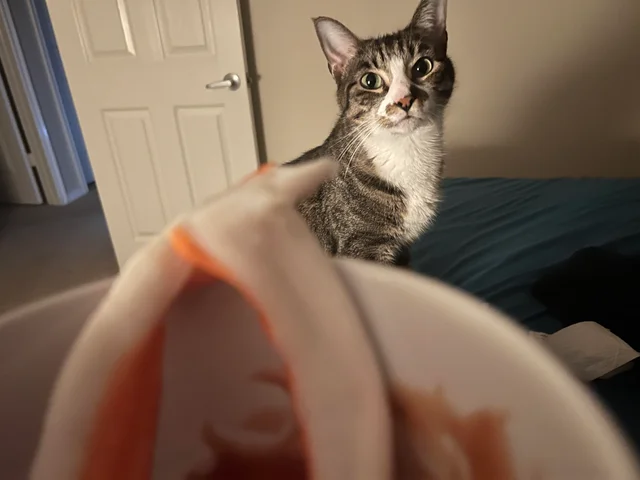
Nutrition Facts about Imitation Crab for Cats
One thing to bear in mind when considering imitation crab for your cat is that it’s very high in sodium.
A 1-ounce serving of imitation crab contains more than 200 mg of sodium, which isn’t good for anyone let alone your cat, if consumed in large quantities.
It’s also important to note that the sodium content can vary between brands, so make sure you read the nutrition label on any products carefully before feeding them to your cat.
No products found.
Tips for Feeding Your Cat Imitation Crab
If you do decide that imitation crab is a suitable option for your cat, it’s important to make sure it’s fed as a treat and not as a regular part of their diet.
It should also only ever be fed in small pieces to avoid any risk of choking.
Always make sure the imitation crab is cooked thoroughly before feeding it to your cat, as raw imitation crab can contain harmful bacteria or parasites.
What Kind of Seafood is Safe for Cats?
Although cats are known for having their own unique tastes, seafood is one of their favorite foods.
The safest seafood for cats is cooked and deboned fresh, frozen, or canned fish such as tuna, salmon, salmon trout and other white-fleshed fish.
There are other types of seafood that should be avoided including shellfish, and herring. If you are unsure whether a certain fish is safe or not, then you can always check with your veterinarian to confirm.
Again, I’ll reiterate, be sure to avoid feeding your cat raw fish as it can contain parasites that are harmful to cats. It’s also important to remember that only cook or canned seafood should be given to your cat in small amounts.
No products found.
Understand the Nutritional Benefits of Seafood for Cats.
The nutrients in seafood can be beneficial for cats, providing essential vitamins and minerals to support your cat’s overall wellbeing.
In particular, seafood is a good source of protein and omega-3 fatty acid which are both important for promoting healthy skin and coat, optimizing digestion, and supporting the immune system.
It’s important, however, that you only offer your cat cooked or canned seafood without seasonings or spices, as this can upset their stomach and cause vomiting.
Watch Out for Heavy Metal Contamination in Fish Oils and Supplements.
Fish oil and other supplements, such as cod liver oil, should not be given to cats unless they are specifically recommended by your veterinarian.
This is because fish oils may be tainted with heavy metals, like mercury and cadmium, which can be toxic if consumed in large amounts over a long period of time.
When feeding fish oil or supplements to your cat, it’s best to consult with a professional who can help find you the safest product that’s low in contaminants.
Look for Animal Welfare-Friendly Labels When Purchasing Fish Fillets or Canned Tuna.
It’s essential to check labels when purchasing fish fillets or canned tuna for cats. Look for products certified by the Marine Stewardship Council (MSC), which certifies wild-caught, sustainably sourced seafood.
Additionally, fish should be purchased from environmentally responsible fisheries so that it doesn’t contribute to overfishing or exploitation of certain species.
Feed Your Cat Deboned, Fully Cooked Seafood and Avoid Raw fish Entirely.
Cats can benefit from eating seafood in moderation as long as it is cooked, boneless and firm-fleshed — for example salmon, tuna, cod, shrimp and mackerel.
Avoid raw fish entirely as it contains bacteria that can be harmful to cats, and never feed your catfish with uncooked bones.
What Seafood Can Cats Not Eat?
While cats may find seafood tantalizing, and many cats can eat certain kinds of seafood safely, there are certain types of seafood foods you should avoid feeding your cat.
Fish with bones like sardines, anchovies, and salmon should be avoided as cats can easily choke on them. Shellfish, shrimp and mussels can cause digestive distress in kitties due to their high sulphite content.
Final Thoughts on Can Cats Safely Eat Imitation Crab
While a small amount of imitation crab can be given to your cat as an occasional treat, it is not recommended for long-term use.
Real seafood like tuna or shrimp are healthier options that provide natural protein and beneficial vitamins without artificial ingredients which can make them sick.
If you do choose to feed your cat imitation crab, look for organic canned food specifically made for cats with no fillers or byproducts.
Make sure to read labels carefully as some brands may have fish meal instead of true crab as the main ingredient.
Feed your cat no more than a couple of times per month at the most to ensure their health!
As always, thanks for reading!

